ENVIRONMENTAL RESPONSIBILITY
Investor Relations
Our Role in the Supply Chain
Before determining our impact, it’s important to understand our process and our place in the greater metals processing supply chain.
Olympic Steel is a metals service center. We warehouse, process, and distribute metal products; however, we are not a metals producer. As such, we don’t have the same potential to introduce pollutants into the water or the air that occur during some other metals manufacturing
processes. Instead, we’re part of the supply chain that makes products out of metal.
We buy metal products in bulk from metal producers (steel mills). Then, our role as a metals service center is to break that bulk supply into smaller quantities to sell to our customers. We also support OEMs and other customers by cutting, shaping, and otherwise processing carbon
steel, stainless steel and aluminum.
While we don’t make metals, we do recycle scrap material that mills re-use in their processes to make raw material.
The work we do to process metals for our customers does not distribute pollutants into the water supply, nor do we do any mining or extract any materials from the ground. While we believe our footprint is small, we’re still taking steps to further reduce our overall environmental impact.
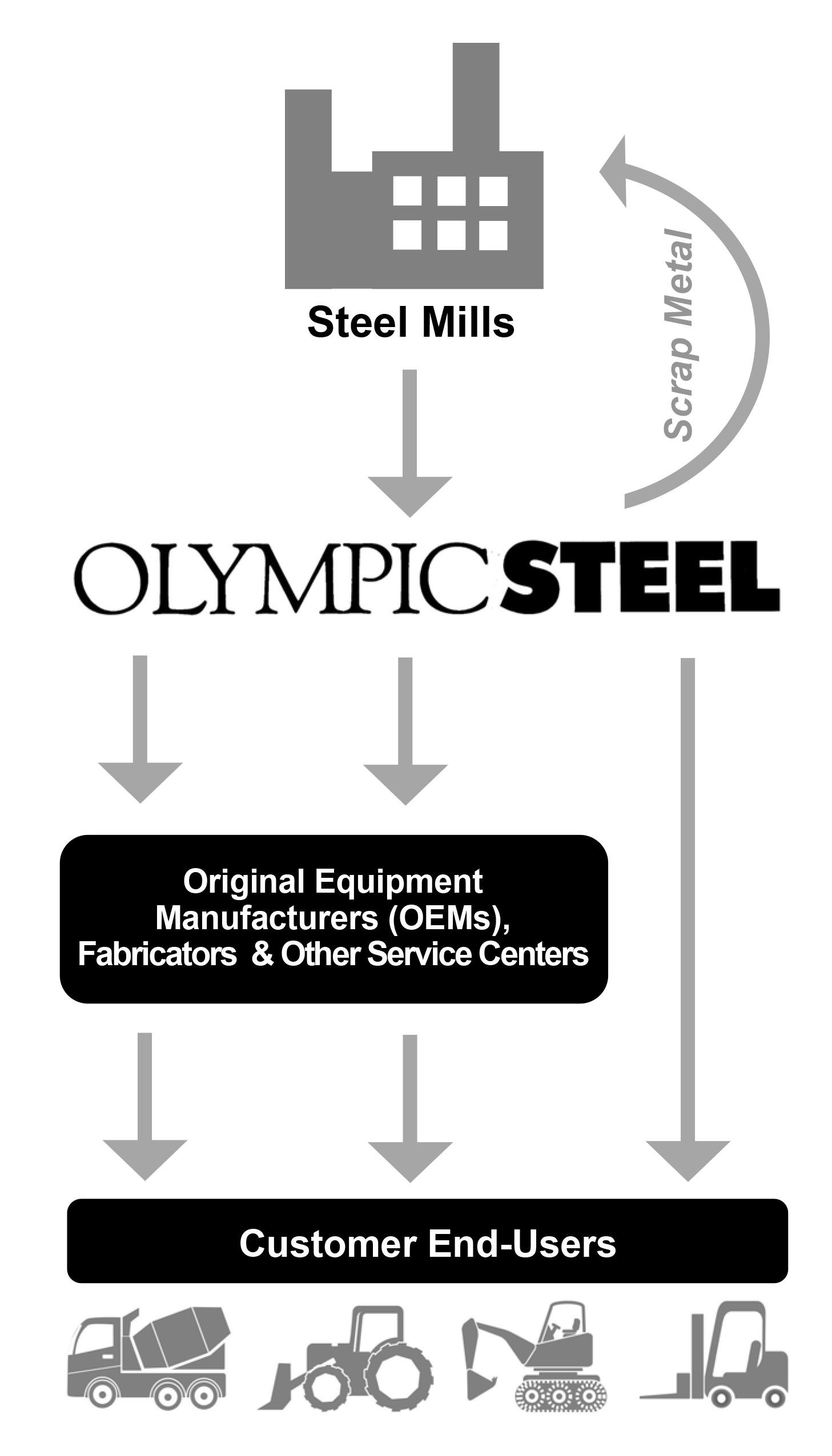
At Olympic Steel, we respect the environment and take very seriously our role as stewards of the planet’s resources. We are committed to following practices that will have a positive impact on the environment and the communities in which we operate – for the benefit of current and future generations of employees, customers and shareholders we serve.
Measuring Our Impact
While our environmental impact is low, we are still committed to holding ourselves accountable to further reduce our GHG emissions. This is evidenced by our environmental lead, who reports directly to our CEO.
In 2023, we engaged a metals industry-specific consulting firm to provide us with our first GHG emissions calculation, which serves as our baseline. This consultant not only helped us measure our emissions, but also helps us monitor and effectively implement processes to comply with ever-changing legislation.
Our Environmental Policy
Olympic Steel is committed to responsible environmental management practices. To protect the environment, Olympic Steel commits to comply with all federal, state and local environmental laws, regulations and other requirements relevant to our organization. We commit to the reduction and prevention of pollution by continually identifying opportunities and improving environmental performance in all aspects of our business. Our commitment to protecting the environment is an integral part of doing business and a primary responsibility of each business unit and every employee.
The full policy is available
here.
BY THE NUMBERS
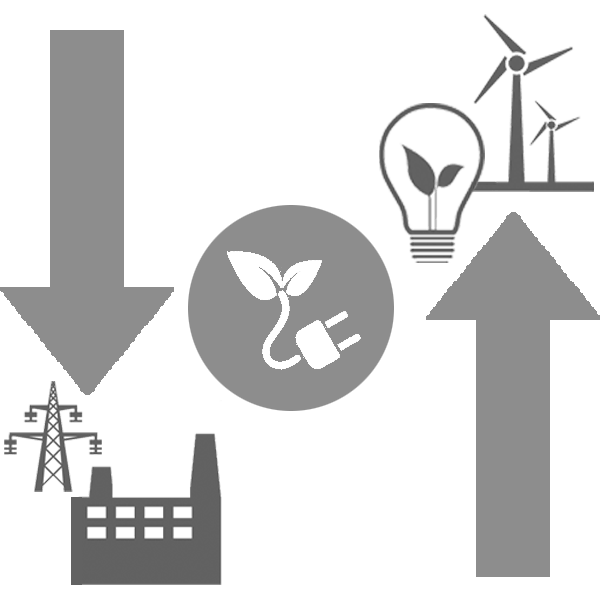
Electricity:
Olympic Steel’s electricity use has been steadily declining. Our electric consumption is as follows:
- 2019 – 10.53 kwh per sq foot
- 2021 – 8.80 kwh per sq foot
- 2022 – 8.75 kwh per sq foot
- 2023 – 8.69 kwh per sq foot
To improve our energy efficiency, we use lower energy, LED lighting. We are 96% complete in updating to LED lighting across the Company. We are also exploring alternatives, such as solar power, where available. In addition, our office buildings in Buford and Winder, Georgia, are certified to Leadership in Energy and Environmental Design (LEED) standards, the most widely used green building rating system in the world.
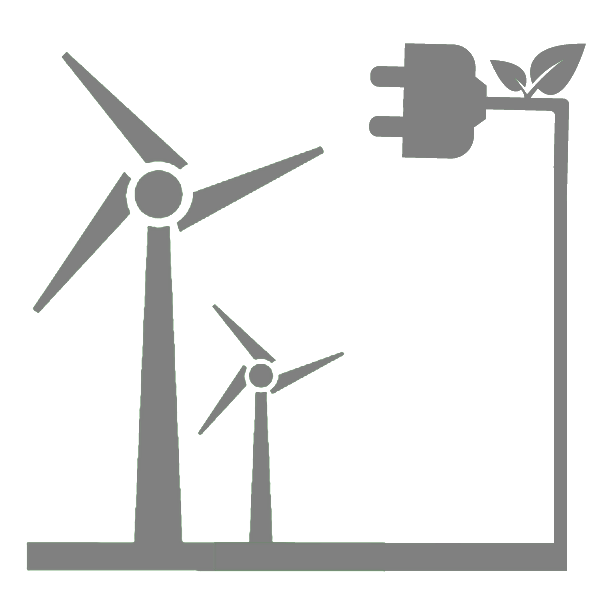
Renewable Energy -
Our energy consultants have calculated our percentage of electricity derived from renewable sources using data from the Emissions & Generation Resource Integrated Database (eGRID) released January 30, 2024. Their calculations show that 21.2% of our electricity consumption was produced from renewable sources (i.e. hydro and wind power). This is a 3.6% increase compared to the 17.6% reported in 2022.
We expect our renewable content to continue to increase as power companies continue to migrate toward renewable sources. The electric provider for our Iowa facilities has informed us that 100% of their production comes from renewable wind sources.
Metal Recycling - Steel is the world’s most recycled material by weight, and in 2023, Olympic Steel recycled nearly 57,000 tons of scrap metal.
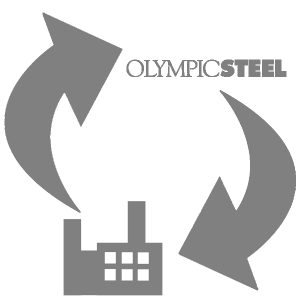
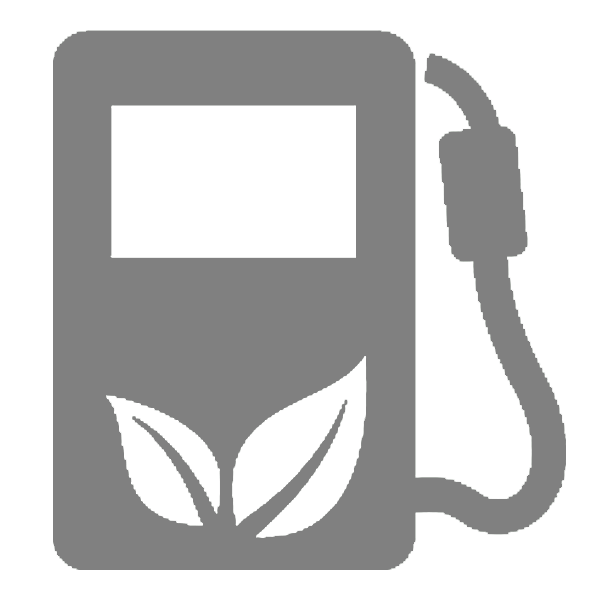
Natural Gas - In 2023, Olympic Steel’s facilities used approximately 1.27 million thermal units of natural gas. This reflects a slight increase year-over-year, as we have continued to grow and add facilities. When comparing to last year without acquisitions, our usage was 1.093 million thermal units, which represents a 5% year-over-year reduction. More than 95% of Olympic Steel facilities use natural gas for heating needs.
We continue to explore opportunities to reduce consumption across all of our locations, including upgrading to high-efficiency generators where possible and using fans and auto-close garage doors in our production spaces to better circulate and conserve heating and cooling.
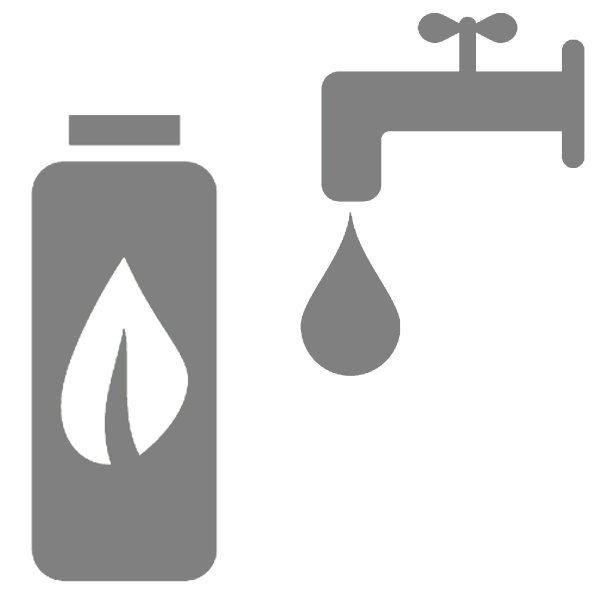
Water Usage - Water usage is not a significant element of our manufacturing process.
That said, we recognize that water is a shared and finite resource.
We commit to preserving this natural resource and minimizing usage by installing water-saving equipment in any newly remodeled facilities, including using low flow toilets and motion detecting sinks.
We have also significantly decreased our use of disposable water bottles by installing water filtration systems and providing reusable water bottles for employees.
Forestry - While many of our products ship to our customers on wooden pallets, we have taken measures to reduce our reliance on use of wood products. We have instituted pallet return programs for customers in order to maximize the life of a wooden pallet. And, although we incur more upfront costs, we utilize reusable, non-wooden materials to ship products to our customers, where possible. This includes using our own fabricated steel racking.
Our goal is to consistently enhance our efforts and show year-over-year progress, including reductions in usage. We also continue to educate our employees on ways to reduce paper use and have paper recycling programs in place in the majority of Olympic Steel facilities. We see these efforts as essential to reducing the demand for lumber, which will ultimately lead to a reduction in deforestation.

Olympic Steel shares the concerns of Congress and the international business community regarding the use of profits derived from the mining of certain minerals in the Democratic Republic of Congo (DRC) or adjoining countries. We are committed to the legal and ethical compliance in all of our business practices and do not buy, sell, or use any conflict minerals.
You can view our Conflict Minerals Disclosure
here
LEARN MORE
Find additional information, including our Scope 1 & 2 GHG Emissions, in our most recent Corporate Responsibility Report available here
About
Locations
© 2024 All rights reserved | Olympic Steel
